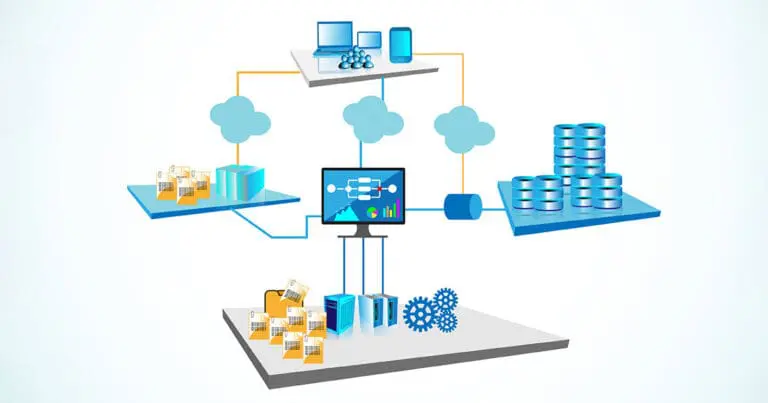Leveraging AI for System Integration & the Demand for AI Talent

The advent of Artificial Intelligence (AI) in the business world has revolutionized how companies operate, making digital transformation a necessity rather than an option.
This transformation has highlighted the need for talented professionals capable of leveraging AI for operational benefits.
From a staffing agency’s perspective, sourcing AI talent is critical in meeting the growing demand for integration solutions that enhance business processes and customer satisfaction.
What is system integration?
System integration is the process of linking together different software applications and computing systems, both physical and virtual components, to act as a coordinated whole.
This is vital for creating a single platform that enables efficient data sharing and centralized communication across an organization.
The growing need for AI in operational efficiency
The growing need for AI in operational efficiency is driven by the increasing complexity of business operations, the need for systems integration, and the role AI plays.
Increasing complexity of business operations
The complexity of business operations has significantly increased, necessitating the integration of disparate systems and outdated systems into cohesive, efficient networks that support dynamic business processes.
Transforming these fragmented systems into synchronized units enhances an organization’s agility and ability to adapt to new challenges.
AI plays a pivotal role in achieving this integration, providing the intelligence and automation capabilities necessary for modern business demands.
The need for systems integration
The growing need for systems integration arises from the desire to streamline operations and improve efficiency.
Integration projects enable horizontal integration and vertical integration of internal systems and external B2B integration, enhancing the agility and responsiveness of businesses.
This ensures that organizations can keep pace with the rapidly changing market demands and technological advancements, maintaining a competitive edge.
The role of AI in system integration
AI addresses these challenges by facilitating star integration and enterprise application integration, thereby eliminating data silos and improving workflow efficiency.
Staffing agencies are crucial in providing the necessary talent to implement these AI-driven integration solutions.
Their expertise in sourcing skilled professionals ensures businesses can effectively leverage AI to meet their system integration needs and achieve operational excellence.
Understanding systems integration
Understanding systems integration starts with understanding modern business operations, customer relationship management (CRMs), enterprise resource planning software (ERPs), and project management tools.
Modern business operations
In modern business operations, systems integration involves application programming interfaces (APIs), enterprise service bus (ESB) solutions, and AI to link software solutions and integration platforms, ensuring seamless operation across the enterprise.
These technologies facilitate efficient data exchange and orchestrate business processes in real time, enhancing operational efficiency.
By employing AI-driven analytics and automation, businesses can anticipate needs and optimize resource allocation, achieving a higher level of integration and responsiveness.
Customer Relationship Management (CRMs)
The seamless functioning of Customer Relationship Management (CRMs) systems is crucial for maintaining strong customer relations, necessitating their integration with other operational systems.
This integration provides a common user interface layer, ensuring that customer-facing employees have access to comprehensive, up-to-date information.
It also facilitates efficient document exchange, streamlining the process of sharing information both internally and with customers.
Enterprise Resource Planning Software (ERPs)
Similarly, the importance of Enterprise Resource Planning Software (ERPs) in system integration lies in their ability to centralize business functions, requiring connectivity with various software products and digital platforms to optimize business integration.
This centralization streamlines the flow of information across departments, ensuring real-time data accessibility and decision-making efficiency.
Consequently, ERPs become the backbone of an integrated system, facilitating seamless operations and enhanced organizational performance.
Project Management Tools
Project Management Tools must integrate seamlessly with other software solutions to enhance project visibility, collaboration, and communication protocols, thereby increasing operational efficiency.
This integration ensures project teams can access real-time data and resources, fostering a more collaborative and efficient working environment.
This also streamlines the communication process, making project management more effective and reducing the risk of delays or miscommunications.
Operational benefits of AI in system integration
Operational benefits of AI in systems integration lead to efficient data sharing, centralized communication, elimination of operational silos, automated decision-making, and streamlined workflows.
Efficient data sharing
AI excels in unifying disparate software systems, enabling them to share data more efficiently and cohesively.
An example is using AI-driven analytics for predictive maintenance in the manufacturing sector, which significantly reduces downtime by anticipating equipment failures before they happen.
This ensures a smoother operational flow and results in significant cost savings for businesses.
Centralized communication
AI further streamlines organisational communication by introducing technologies such as chatbots that provide instant customer service.
This not only improves customer satisfaction by offering timely responses to inquiries but also enhances operational efficiency by automating routine tasks.
Consequently, businesses can allocate human resources to more complex issues, optimizing overall productivity.
Elimination of operational silos
AI integration plays a crucial role in dismantling operational silos and what’s known as spaghetti integration, facilitating a more streamlined and efficient workflow across various departments.
This creates an integrated ecosystem that is essential for supporting digital transformation initiatives within organizations.
AI ensures that complex, interwoven systems work together seamlessly, enhancing operational agility and responsiveness.
Automated Decision-Making
AI’s prominence in the financial services sector underscores its pivotal role in enabling expedited, data-driven decisions, particularly in the context of loan approvals.
By harnessing sophisticated algorithms and machine learning, AI analyzes vast arrays of applicant data to deliver swift and accurate assessments.
This automated decision-making capability streamlines the loan approval process and significantly enhances operational efficiency in crucial business areas.
Streamlined Workflows
In healthcare, AI integration significantly enhances patient data management, enabling healthcare professionals to access and analyze patient information more efficiently.
This leads to better care coordination among different healthcare providers, ensuring a more cohesive treatment plan.
Streamlined workflows, as a result, improve customer satisfaction by providing quicker, more accurate, and personalized healthcare services.
The talent behind AI in system integration
The need for skilled AI professionals
The implementation and management of AI systems necessitate professionals adept in both the intricate technicalities of AI technologies and the operational dynamics of system integration, underlining a significant demand in the integration market for such specialized talent.
These professionals are crucial in bridging the gap between advanced AI capabilities and practical business applications, ensuring successful system integration endeavors.
The role of staffing agencies
Staffing agencies are pivotal in sourcing AI talent capable of driving business growth through effective system integration.
They connect businesses with professionals who can navigate the integration process, develop custom software, and implement integration solutions.
The future of AI in business operations
The future of AI in business operations hinges on an increasing reliance on AI and the ongoing need for AI professionals.
Increasing reliance on AI
The reliance on AI for operational efficiency and innovation is predicted to grow significantly, necessitating advanced integration solutions that can adapt to the rapidly evolving integration market and the digital transformation needs of businesses.
This will ensure that organizations remain competitive and agile in a technology-driven marketplace.
Ongoing need for AI professionals
The ongoing need for AI professionals underscores the importance of integration projects and custom code development to ensure integrated systems operate seamlessly on a single platform.
Their expertise is fundamental in leveraging AI’s full potential to enhance operational efficiency and innovation in business operations.
Using AI for system integration
While the effectiveness of AI varies based on the application, data quality, and model sophistication, the operational benefits of AI in system integration clearly underscore the indispensable role of highly skilled professionals in maximizing these technological advantages.
Businesses are urged to collaborate with reputable staffing agencies to source the talent required for effective AI integration.
This will guarantee that their operations are well-prepared to face the complexities of today’s digital environment.
This partnership is essential for firms aiming to stay at the forefront of innovation and maintain a competitive edge in the market.
Looking to hire top-tier Tech & AI Talent? We can help.
Every year, Mondo helps to fill over 2,000 open positions nationwide.
More Reading…
- Leading with Empathy: The Key to Effective Remote Leadership
- Embracing the 32-Hour Work Week & Talent Retention
- The Ripple Effects of Meta’s AI Hiring Blitz on the Tech Job Market
- AI You Didn’t Realize Your Organization Is Already Using
- The Latest Innovations in Health and Wellness Technology
- Green Tech: 5 Sustainability Innovations in the Tech Sector
- How to Write an ATS-Friendly Resume in 2024
- Quantifying a Project Manager’s Success to Advocate for Hiring
- Breaking the Code: How Women are Shaping the Future of Cybersecurity
- The Rise of AI Majors: Transforming the US Job Market
- Tips to Leverage Your Onboarding Process for Employee Retention
- 10 Tech Jobs That Saw the Highest Salary Growth This Year
- Highest Paid Data Science Roles & Top Salaries



